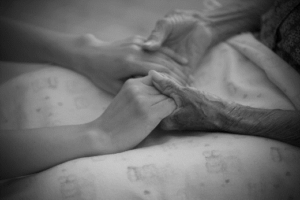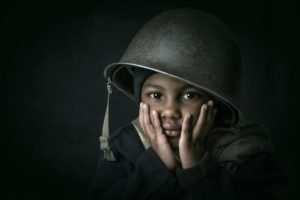20 years since Graça Machel’s report on “The Impact of Armed Conflict on Children”: what input on the rehabilitation of former child soldiers?
On 9th December 2016, Humanium participated in the celebration of the 20 years mandate of the Office of the Special Representative of the Secretary General for Children and Armed Conflict at the United Nations.
The event was based on Graça Machel’s report related to the “Impact of armed conflict on children”. She is also known as the last wife of Nelson Mandela’s, who we all know and admire deeply.
Child soldiers’ rehabilitation should include families and communities
Since 2000, more than 115,000 child soldiers have been released, and a global norm that children should not be recruited and used in conflict, and should be protected from all other grave violations, has resulted from advocacy. Graça Machel recommended in her report that « (…) programs should aim to support healing processes and re-establish a sense of normality (…) daily routines of family and community life, opportunity for expression and structured activities such as school, play and sports ». A commendable recommendation, but only taking into account children, and not the family or the community they belong to.
That is why Humanium only partially agrees. In fact, Humanium noticed that the variety of traumas suffered by child soldiers are not only direct ones, and thus they do not only concern the child but also impact the family. Humanitarian interventions should therefore also include the family. We can feel it through our actions. Our focus in Rwanda, Madagascar and India is on strong community building throug each group we help. In doing so, we noticed that within the family and the community of the child, often the adults’ inner children suffer (as well) from their own experiences and may be traumatized too.
What if rehabilitation was linked to consciousness?
 Children and communities we serve are empowered to connect with their consciousness, with these beautiful human beings who create inspiring futures from their heart. We know and have understood that « every child knows », and thus, for the psychosocial well-being of all, yes, children MUST be protected AND adults should also have the possibility to connect to their inner self, and have room for the expression of their feelings, and to learn from children and from themselves.
Children and communities we serve are empowered to connect with their consciousness, with these beautiful human beings who create inspiring futures from their heart. We know and have understood that « every child knows », and thus, for the psychosocial well-being of all, yes, children MUST be protected AND adults should also have the possibility to connect to their inner self, and have room for the expression of their feelings, and to learn from children and from themselves.
The children we help are waking up with the wish to help their communities, and consequently, this world, as best as they can. Their psychosocial well-being is as important a right as is their right to adequate food and drinking water.
Thank you, Arndt Soret


